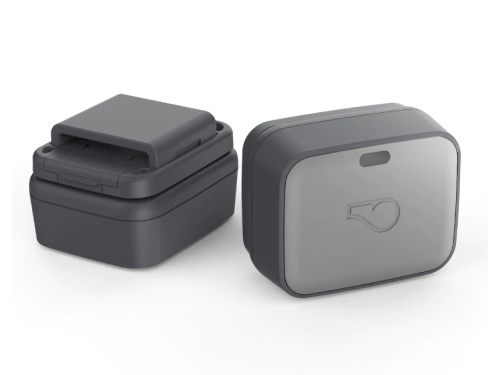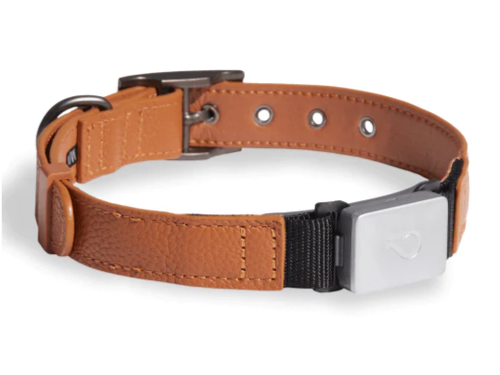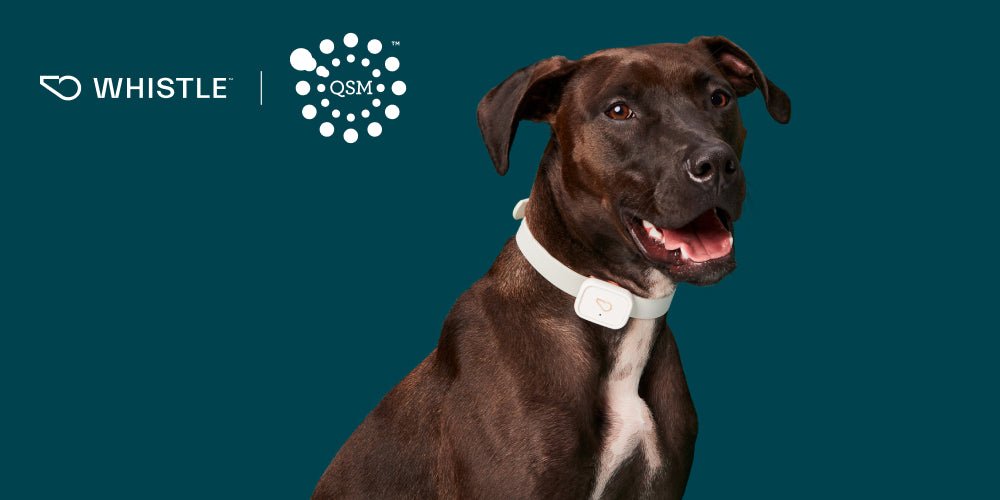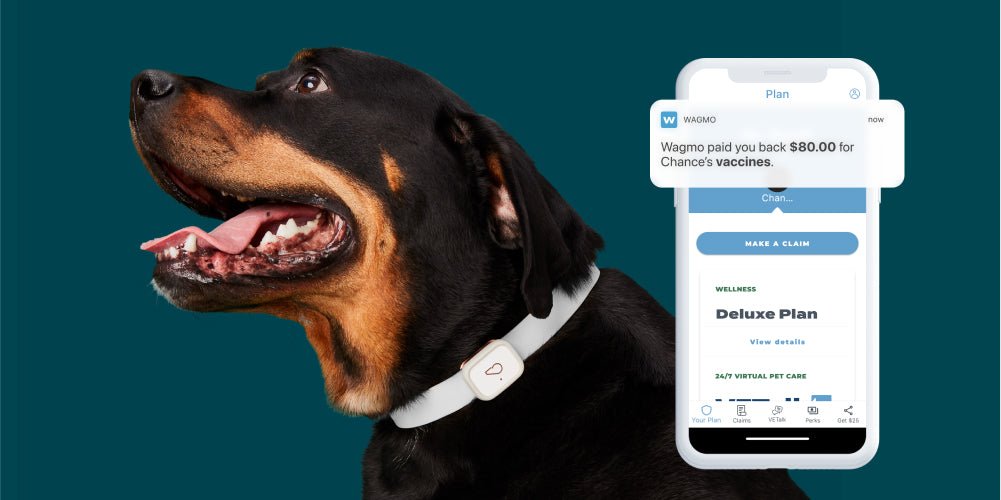Dog GPS Trackers Vs Microchips
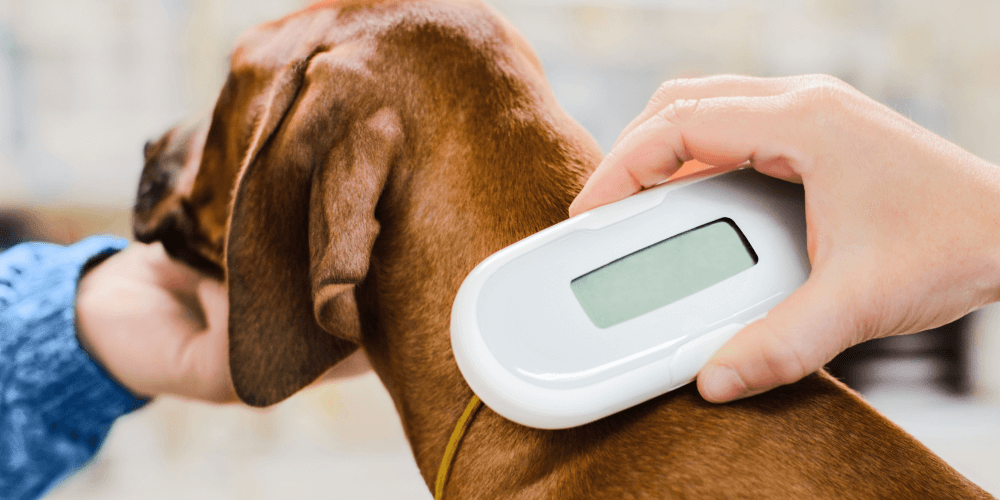
Dogs are curious creatures. But following a scent in the woods, chasing after squirrels or a panicked run from perceived danger can cause them to get lost.
The American Veterinary Medical Association (AVMA) estimates that 10 million dogs and cats in the United States are lost or stolen every year. There are tons of tips for finding lost dogs from scouting the neighborhood and photos on social media sites to hiring a canine tracking crew but GPS trackers and microchips might be the most effective means of locating a lost dog.
What is a GPS tracker for Dogs?
A global positioning system (GPS) sends and receives signals to a network of satellites to pinpoint the specific location of an object. GPS trackers can provide information about latitude and longitude in real time.
How Does GPS Tracking Work for Dogs?
GPS devices are small enough to be attached to your dog’s collar and use information from satellites to pinpoint your four-legged friend’s exact location. The information is relayed to your mobile device via an app and allows you to track your dog’s movements in real time.
What are the Benefits of a Dog GPS tracker?
Locating lost dogs: One of the biggest benefits of a dog GPS tracker is always knowing your dog’s exact location.
Whistle Go Explore 2.0 and Whistle Switch Smart Collar provide location updates every 15 seconds, which means that you have a much better chance of finding a dog that escapes and bringing them back home quickly.
Real time updates: Dog GPS trackers rely on satellite communications that are constantly updated. Instead of putting up posters and wandering around the neighborhood in the hopes of spotting your lost dog, GPS trackers can pinpoint your dog’s exact location at this very moment.
The real time updates aren’t just essential in the event that your dog gets lost; the information is useful for herding, hunting or other working dogs that move across large distances.
Peace of mind: In addition to providing real time location updates, GPS trackers provide peace of mind that you always know your dog’s location. You can use Whistle devices to set up designated safe spaces (think: a designated area around the perimeter of your house) and send alerts when your dog ventures outside of that zone.
Robust data: GPS trackers do more than just track your dog’s location in real time; the devices can also provide insights into health metrics such as activity levels, eating, drinking and sleeping patterns and monitoring behaviors like scratching or licking that could be signs of health issues.
How much Does It Cost to Track with GPS
The cost of GPS dog trackers varies. The upfront cost for the tracker can range from $20 to $200 and most companies charge a subscription fee to connect to the cellular service that provides real time GPS tracking updates. The fees can be around $100 per year (and can often be paid in monthly installments).
What is a Dog Microchip?
A dog microchip is an electronic chip about the size of a grain of rice that has a unique radio frequency identification (RFID) code. The chip is injected under the skin, between the shoulder blades, and doesn’t require anesthesia or surgeries.
When a scanner is passed over the chip, it reads the information on the RFID code provides important information, including the owner’s contact information.
Capabilities
A microchip is a form of identification. The unique identification number is linked to a database that includes basic information about the dog and contact information for the owner, allowing the animal control officer, shelter or veterinarian who scans the chip knows how to contact the pet parents to get the dog back home.
Microchips must be registered online. If you don’t register the chip, scanning the chip won’t provide essential information like your name, address and phone number that will help you reunite with your lost dog.
A microchip is not a tracking device. Microchips do not have GPS capabilities to alert you to the location of your lost pet.
What are the Benefits of Microchipping your Dog?
Microchipping your dog has several benefits.
Permanent identification: Unlike collars and tags that can get lost, a microchip is permanent identification. Shelters and veterinarians will scan lost dogs for microchips in the hopes of reuniting them with their worried owners.
National reach: There are several companies offering microchips and all maintain national databases, which means if your dog was microchipped in Portland, Maine, and goes missing while you’re vacationing in Portland, Oregon, your dog’s information will still show up in the database.
Quick and inexpensive: It takes just a few minutes and an average of $50 to have a pet microchipped. Some microchip services charge additional registration fees, but most are nominal.
Happy reunions: Microchips increase the odds that your lost dog will return home. AVMA data shows that just 52 percent of microchipped dogs that enter the animal shelter are returned to their owners compared with 22 percent of dogs that aren’t microchipped.
How Much Does It Cost to Microchip a Dog
The average cost for a dog microchip is $25 to $70. Some microchip service providers charge a fee to maintain registration, but the cost is often nominal.
Animal shelters and rescue groups often host low cost clinics to offer dog microchips at reduced costs.
What is the Best Tracking System for Dogs?
Not sure whether to use a microchip or GPS tracker for your dog? Let’s break down the options.
| Feature | Microchip | GPS Tracker |
|---|---|---|
| Upfront Cost | $25 to $70 | Device and subscription |
| Doubles as Identification | Yes | No |
| Implantable | Yes | No |
| Location Tracking | No | Yes |
| Real Time Location Updates | No | Yes |
| Batteries Required | No | Yes |
| Health Monitoring | No | Yes |
FAQ
Can I put a GPS tracker inside my dog? GPS tracking devices attach to your dog’s collar and microchips are implanted under the skin. There are currently no GPS trackers that can be implanted under the skin.
What is the best tracking system for dogs? Microchips don’t have tracking abilities; GPS tracking is the best—and only—option for tracking your dog’s location in real time.
Can GPS track lost pets in real-time? Yes. GPS trackers connect with satellites and relay information about your dog’s location in real time, so you’ll always know the exact location of your best friend.
Can I track my dog with a microchip? No, microchips aren’t tracking devices and can’t provide information about your dog’s location.
How much does it cost yearly to microchip a dog? Most companies charge a one-time fee of $25 to $70 for a microchip and some charge additional fees to maintain your registration.
How long does a microchip last in a dog? A microchip is a permanent implant that will last throughout your dog’s entire life.
How much does it cost to get a GPS tracker for your dog? The upfront cost for a GPS tracker ranges from $20 to $200. Most companies also charge annual subscription fees to connect to the cellular service that provides real time GPS tracking updates.
Can I track my dog with my phone? GPS trackers are often connected to smartphone apps, allowing you to track to your dog’s location with your phone.
When a dog is lost, your goal is to bring them back home as quickly as possible and the right identification and tracking devices can help.
Instead of choosing one option—or not outfitting your dog with any ID at all—consider protecting them with a collar and identification tags, GPS tracking collar and microchip to increase the odds your favorite four-legged friend will find their way home.
References
https://www.avma.org/resources-tools/pet-owners/petcare/microchips-reunite-pets-families/microchipping-faq
https://www.caninejournal.com/microchips-for-dogs/
https://education.nationalgeographic.org/resource/gps/
https://news.orvis.com/dogs/what-is-a-gps-for-dogs
https://www.nytimes.com/wirecutter/reviews/best-gps-pet-trackers/

